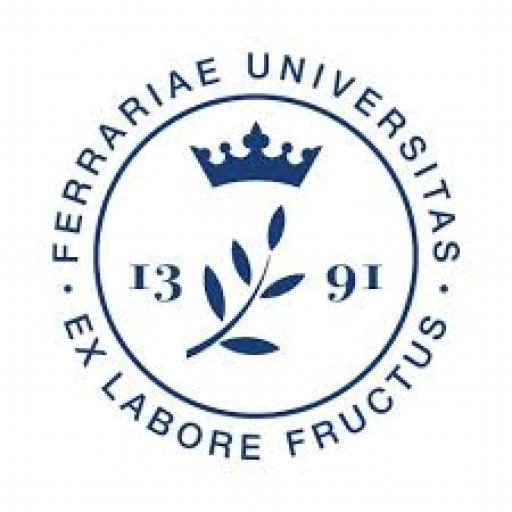Orthoptics is a specialized healthcare profession focused on diagnosing and managing disorders of eye movement and vision. At Glasgow Caledonian University, the Orthoptics degree program offers students a comprehensive education that combines theoretical knowledge with practical clinical skills essential for delivering high-quality eye care. Throughout the course, students explore the anatomy and physiology of the visual system, learn how to assess visual function, and develop treatment plans for a wide range of conditions such as strabismus, amblyopia, and binocular vision anomalies. The program is designed to prepare graduates for a rewarding career in hospitals, clinics, and community practice, working alongside ophthalmologists and other healthcare professionals. The curriculum incorporates the latest advances in eye care technology and evidence-based practices, ensuring students are well-equipped to meet current clinical standards. An emphasis on patient-centred care ensures that students develop excellent communication skills to effectively support and educate patients of all ages. The program includes placements in clinical environments where students gain hands-on experience under supervision, fostering confidence and competence in their diagnostic and management skills. Graduates of the Orthoptics program are eligible for registration with the Health and Care Professions Council (HCPC), enabling them to practice as qualified Orthoptists within the UK. The program also promotes research and continual professional development, ensuring graduates stay current with evolving practices. With a commitment to fostering diversity and inclusion, the university's Orthoptics course is ideal for those passionate about improving patients' quality of life through eye care. Overall, this degree prepares students for a challenging and fulfilling career dedicated to visual health, making a tangible difference in patients' lives through expert assessment, treatment, and support.
Detailed Course Facts
Tuition fee Not specified Start date 2016 Languages Take an IELTS test- English
Course Content
The course consists of lectures tutorials, practical labs and clinics. Practical experience is gained in the GCU eye clinic as well as at hospital eye departments. Chances to experience a range of specialised clinics such as low vision, visual stress, visual evoked potentials and special needs clinic are provided in the eye clinic at GCU. Students can choose honours projects from a selection of titles provided by staff from a range of disciplines and interests allowing the student to develop their understanding in specialist areas of their choice.
Year 1:
Foundations for Practice in Health and Social Care, Ocular Anatomy and Physiology, Child Development and Health Optics, Refraction and Binocular Vision I, Practice Education 1
Year 2:
Diagnostic Techniques, Ocular Pharmacology, Ocular Pathology, Physiology and Microbiology, Refraction and Binocular Vision 2, Introductory Ocular Disease, Practice Education 2
Year 3:
Advanced Orthoptics I & II, Paediatrics, Physiological Optics, Research Methods and Statistics, Clinical Ophthalmology, Abnormal Binocular Vision, Practice Education 3
Year 4:
Organisations, Policy and Professional Practice, Developments in Professional Practice, Honours Project, Advanced Orthoptics 3, Practice Education 4
Requirements
Higher: BBBBC Essential Subjects: Mathematics, English plus two sciences (Higher/ILC-H), Mathematics and Physics (S Grade 1/ Int 2 A/GCSE A) and English (S Grade 2/ Int 2 B/GCSE B) A Level: BBB ILC: AABBB BTEC: Relevant subject plus GCSEs IB Diploma: 24 points including Sciences Recommended Subjects: Two science subjects (Higher/ILC-H) from Biology, Chemistry, Mathematics or Physics, with preference given to Biology or Human Biology. One science subject at A Level.
Work Experience
No work experience is required.
Related Scholarships*
- Academic Excellence Scholarship
"The Academic Excellence Scholarship can provide up to a 50 % reduction in tuition per semester. These scholarships will be renewed if the student maintains superior academic performance during each semester of their 3-year Bachelor programme. The scholarship will be directly applied to the student’s tuition fees."
- Access Bursary
Bursary for UK students all subjects where the variable tuition fee rate is payable.
- Alumni Bursary
Alumni Bursary for UK Undergraduate students
* The scholarships shown on this page are suggestions first and foremost. They could be offered by other organisations than Glasgow Caledonian University.
Orthoptics at Glasgow Caledonian University is a comprehensive undergraduate program designed to prepare students for a career in the assessment and management of eye movement disorders and visual problems. The program focuses on developing clinical skills, theoretical knowledge, and practical experience necessary for diagnosing and treating patients with conditions such as strabismus, amblyopia, and binocular vision anomalies. Throughout the course, students engage in a blend of lectures, practical workshops, clinical placements, and research projects, enabling them to apply their learning in real-world settings. The curriculum covers a wide range of topics including ocular anatomy and physiology, optics, paediatric ophthalmology, neuro-ophthalmology, and eyecare management. Students are trained to use advanced diagnostic tools and treatment techniques, with an emphasis on evidence-based practice and patient-centered care. Glasgow Caledonian University collaborates with various clinical partners to provide placement opportunities at hospitals and eye clinics, ensuring students gain valuable hands-on experience. The program also incorporates interprofessional learning, encouraging teamwork with other healthcare professionals such as optometrists, ophthalmologists, and orthoptists. Graduates of the Orthoptics program are eligible to register with the Health and Care Professions Council (HCPC) and pursue careers in hospitals, private clinics, eye care centers, and community health services. The university supports students with academic advising, research opportunities, and career development workshops. The program’s strong emphasis on practical skills, scientific understanding, and ethical practice aims to produce competent and compassionate clinicians who can make meaningful contributions to eye health and visual rehabilitation. With the increasing demand for eye care professionals, this program prepares students for a dynamic and rewarding career dedicated to improving patients' visual well-being and quality of life.










